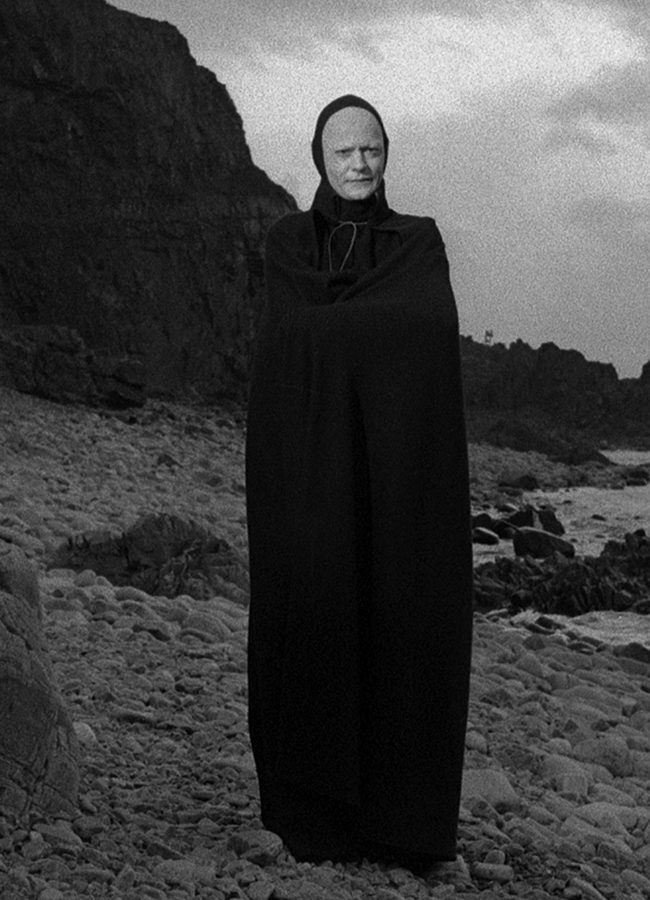
(Noël Wells’ Mr. Roosevelt premiered to great acclaim at SXSW, where it won the Audience Award in Narrative Spotlight and the Louis Black Lone Star Award. It also was awarded Best Narrative Feature at the 2017 Bend Film Festival. The film is beginning to roll out now so, keep an eye out!)
Noël Wells’ feature debut is not expressly autobiographical, but there are certainly many parallels between the flailing comedian protagonist and the writer/director/star of the film. Wells was on one season of SNL, but really turned heads as Aziz Ansari’s season 1 paramour on Master of None. Her first film proves that though she’s a talented actress, she’s an even better writer and director. Those others were just holding her back.
Mr. Roosevelt opens with what one assumes is a loose reenactment of her SNL audition. She takes too long answering a question about the first time she made people laugh and is left with one minute to cycle through her esoteric impressions, including Holly Hunter at a yard sale, a baby turning into a pug, and Kristen Wiig discovering a crime scene. Despite time constraints, she’s really good. And yet, no one acknowledges her. A woman tells her they have a lot of people to see. Emily is obviously talented but she doesn’t really know what to do with it and neither, it seems, does anyone else in L.A. – including the self-important male comedians in her social circle, and her boss (Doug Benson) at a video editing company.
That’s why she doesn’t hesitate to hop on a plane to Austin when her ex-boyfriend, Eric (Nick Thune), calls to tell her their shared cat is on his deathbed. But Emily arrives too late. The doctor meets Emily and Eric in the waiting room to break the news, and that’s when Eric introduces Emily to his new girlfriend, Celeste (Britt Lower).
Celeste has moved into the house Emily and Eric used to occupy, completely remodeled it to suit her “Pinterest” taste, and also claimed the now deceased Mr. Roosevelt as her own. But Celeste isn’t a villain. She’s done all this in, like, the nicest way possible. After all, it was Emily who dumped Eric without warning over the phone. It seems he’s moved on with someone who is the polar opposite of the woman who broke his heart.
You may think you know where this is going, but I promise, you don’t. Wells’ film vehemently eschews Rom Com tropes. For starters, despite the set-up, it’s not a Rom Com at all. It’s a career coming of age story, about a woman with an embarrassment of raw talent and an identity crisis. Emily left Austin to make it in show business, but she has trouble explaining her job to Celeste’s friends. She calls herself a comedian, but they are confused when she says she doesn’t do stand-up. When they ask if that means she’s an actress, she quips that a comedian is a less attractive version of an actress. She has YouTube videos with millions of views, but has yet to figure out “how to monetize it.”
Mr. Roosevelt is also about the inevitable change that comes to beloved cities like Austin. Emily and her friends represent old Austin, with their vintage clothes, house parties, tattoos, and weed-fueled picnics at Barton Springs. Celeste is new Austin, with slick coffeehouses replacing the worn-in joints, a flowy grayscale wardrobe, tech start-ups, and meditation apps. The new way isn’t necessarily wrong, and the old way isn’t extinct. But Austin isn’t quite so weird anymore and that’s just something the old guard has to learn to live with.
Wells has an incredible knack for dialogue and characterization. She shows us what kind of couple Eric and Emily were through their refreshingly vague references in conversation and photos she finds in a box and on facebook. She can sum up a whole person with just a line or two, including the awful men in her comedy scene and Celeste’s friends who attend a funeral brunch for Mr. Roosevelt. Celeste herself is walking shorthand for a well-meaning perfectionist who only serves to agitate Emily at every turn.

A standout character is Jen (Daniella Pineda), a bohemian former acquaintance of Emily’s who recognizes her from her YouTube videos and kindles a fast friendship in a time of emotional crisis. Their bond feels a bit rushed, but on the other hand, Jen is so cool and charismatic that you understand why even a curmudgeon like Emily would immediately want to be her best friend. Emily and Celeste are opposites but Jen is on another spectrum entirely. She’s in a band, waits tables, lives in a squalid house with revolving roommates and sometimes airbnbs her couch. A different stoned bearded man answers the door every time. And yet, she’s not a flake. She is there for Emily at every turn, even when Emily doesn’t necessarily deserve it.
I won’t tell you how it all shakes out, but a spoiler about Wells is that she’s found her niche. She’s a filmmaker and a storyteller. Even if she only writes about herself for the rest of her career, like a non-creepy Woody Allen, I can’t imagine it will get old.
Wells is more than just a great storyteller. She also has a fantastic cinematic eye, choosing to shoot on good old 35 mm. The warmth of celluloid is no less than a beautiful city like Austin deserves. Wells pays a loving tribute to her collegiate stomping grounds. She knows exactly how to convey the meat of a scene in her shot composition.
This film also passes the Bechdel test like whoa, with Emily and Jen’s friendship. In a particularly lovely scene, Emily accompanies Jen and her merry band of weirdos to a riverside picnic where a group of women swim topless without shame. What Wells accomplishes in this scene is nothing short of remarkable. Though there is a man present, he doesn’t affect the scene. He packs a bowl and receives Emily’s refreshing tirade about the sexism behind calling women quirky.
Emily is at first horrified when the women, a lovely mix of realistic body types, all remove their bikini tops. But they do so with such comfort and matter-of-factness. In this scene, Wells performs a magic trick. She triumphantly subverts the male gaze using boobs. These women are freeing themselves from the tyranny of bras. They’re talking about something other than a man. Emily is in a safe space to let go and eventually, she does. Moments like this are clues to what Wells is capable of. This film is good, but she’s got something way better up her sleeve and I can’t wait to find out what it is.
– Jessica Baxter (@tehBaxter)











